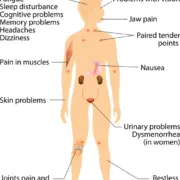Occupational Therapy Reduces Hospital Readmissions
By definition, Occupational therapists must often determine whether the patient can complete daily functions on their own, or whether a caregiver is ultimately needed. They focus on the patient’s well being, both in and outside of therapy, with the ultimate goal of determining and maintaining a person’s capability to function in regular society. In some circumstances, an occupational therapist is tasked with evaluating whether someone will continue to be at risk of hospitalization if left in their current living or working situation.
Research and evidence from an independent study published in Medical Care Research and Review showed that occupational therapy reduces hospital readmission rates for the three health conditions studied: heart failure, pneumonia, and acute myocardial infarction. This was largely due to how occupational therapy places a unique focus on the patient’s return to his or her daily life. Improvement of daily functions is immensely important for the safety of patients, and thus are the primary focus of occupational therapists.
The research specifically looked at Medicare claims and cost data to understand hospital spending for specific services and the 30-day admission rates for heart failure, pneumonia, and acute myocardial infarction. The correlation focused on occupational therapy’s mission to improve patient’s functional and social needs, which are huge underlying factors in readmission if left unaddressed. Sometimes, a helping hand is needed to guide people back to a healthy and safe lifestyle.
The study cited six specific interventions that occupational therapists can provide to lower readmission rates by:
- Providing recommendations and training for caregivers. Making sure that the caregivers and patient have a good understanding and respect for one another.
- Determining whether patients can safely live independently, or require further rehabilitation, nursing care, or assisted living.
- Addressing existing disabilities with assistive devices, so patients can safely perform activities of daily living (e.g., using the bathroom, bathing, getting dressed, making a meal).
- Performing home safety assessments before discharge, to suggest modifications or the possible need for a home that is more amenable to a particular patient.
- Assessing cognition and the ability to physically manipulate things like medication containers, and provide training when necessary.
- Working with physical therapists to increase the intensity of inpatient rehabilitation when needed, and determine the best possible rehab plan for the patient.
If you would like more information on this study go to: Occupational Therapy Reduces Hospital Readmissions, and call Colorado Center for Orthopaedic Excellence (719) 623-1050 to request an appointment.







